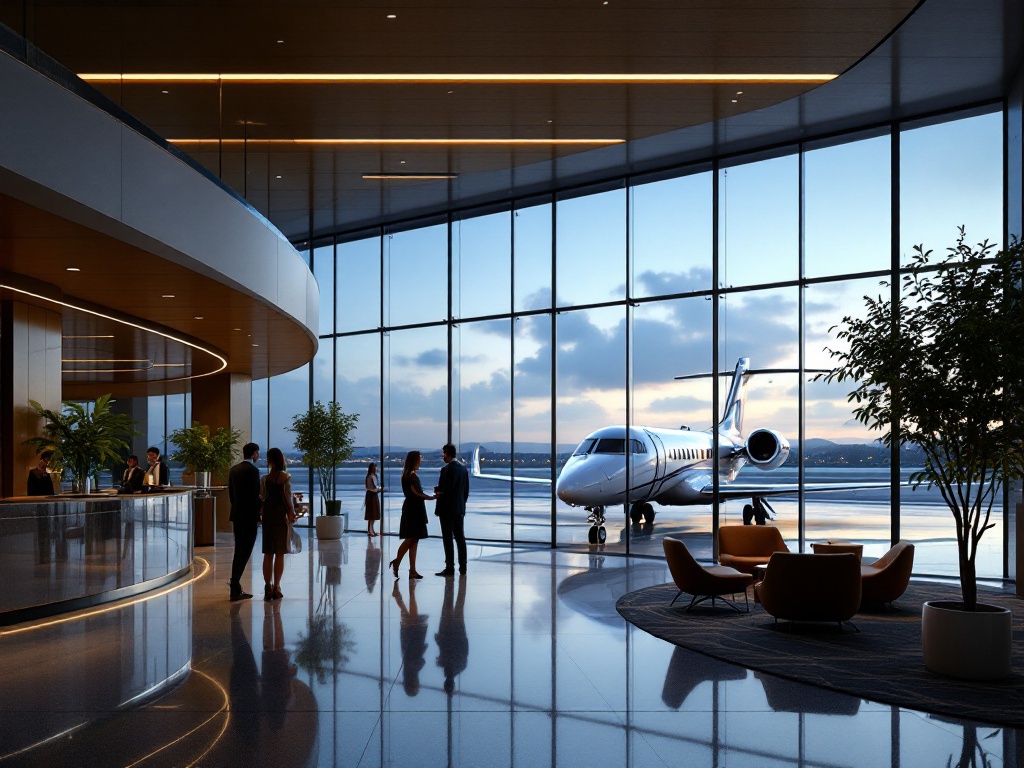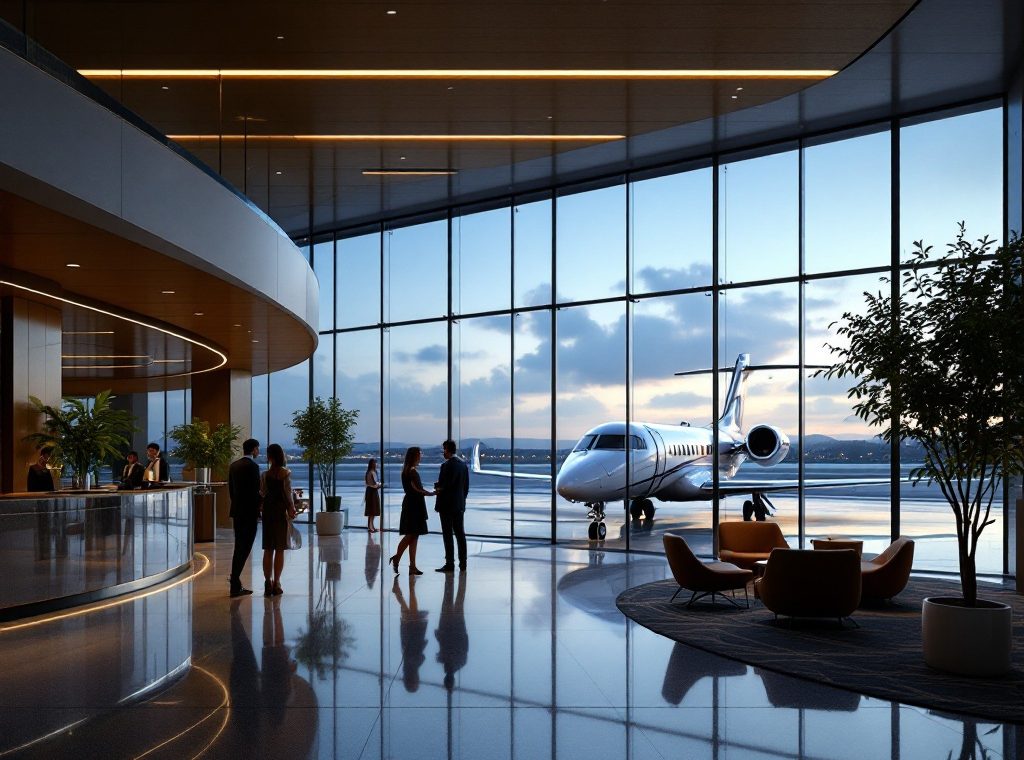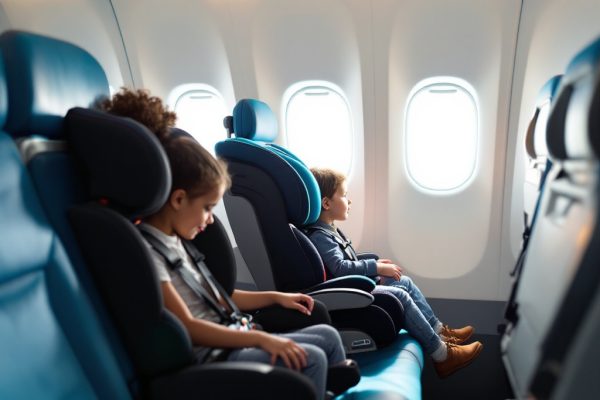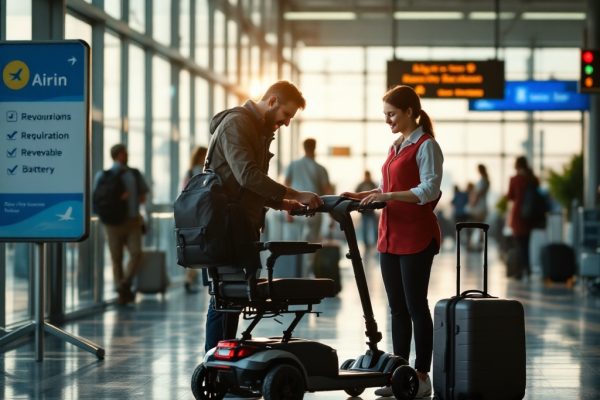What Is a Private Airport: Traveler’s Wordbook
Soar above the crowds and experience the unparalleled exclusivity of private airports. These specialized facilities offer distinct advantages over commercial airports, including streamlined security, personalized service, and access to private terminals and hangars. From reduced regulatory burdens to enhanced privacy and comfort, discover how private airports cater to the unique needs of private, corporate, and charter flights. Learn about ownership models, FBO services, and essential etiquette to prepare for your next elevated travel experience. Read on to unlock the secrets of private aviation.
Important information

- Private airports serve private, corporate, or charter flights, offering flexibility and personalized service.
- They provide amenities like private terminals, hangars, and streamlined security.
- FBOs (Fixed-Base Operators) manage essential services at private airports, including fueling, maintenance, and ground handling.
- Access is restricted to authorized personnel, enhancing privacy and security.
- While offering convenience and exclusivity, private airports often have shorter runways and may have limited amenities compared to public airports.
What is a Private Airport?
Private airports, serving private, corporate, or charter flights, offer distinct advantages over public airports. One key benefit is the reduced regulatory burden, allowing for greater flexibility. Personalized service caters to individual needs, enhancing the overall experience. Ownership models vary, ranging from individual proprietors to corporations and organizations. Many private airports boast amenities such as private terminals and hangars, ensuring both convenience and enhanced security for aircraft and passengers.
Benefits of Private Airports
- Reduced regulatory burden, allowing for greater flexibility.
- Personalized service catering to individual needs.
- Enhanced security for aircraft and passengers.
Features of Private Airports
- Varied ownership models (individual proprietors, corporations, organizations).
- Private terminals and hangars for convenience.
- Exclusive service for private, corporate, or charter flights.
Differences Between Public and Private Airports
Public Airports
Public airports, the bustling hubs of air travel, manage all commercial flights, serving numerous airlines and countless passengers.
Private Airports
Private airports restrict access, catering exclusively to private and charter flights. This exclusivity minimizes congestion and wait times, leading to a more personalized experience.
Public airports accommodate larger aircraft and higher passenger volumes, as seen in major international airports.
Private airports focus on general aviation and smaller aircraft.
Characteristics of Private Airports
Private airports cater to private, corporate, and charter flights, often featuring shorter runways and limited amenities. However, they streamline security and offer essential services.
Benefits of Private Airports:
- streamlined security,
- essential services,
- dedicated terminals (in some cases).
Features of Private Airports:
- shorter runways,
- limited amenities,
- fueling,
- hangar space,
- aircraft maintenance.
All operations at private airports adhere to aviation regulations, safety standards, and environmental requirements, ensuring safe and responsible practices.
Ownership and Access Restrictions
Private airports are owned by individuals, corporations, or organizations, which allows them to control access and restrict it to authorized personnel. This tight security ensures smooth and efficient operations. The private ownership model also offers more flexibility, allowing owners to tailor operations to their specific needs. However, these airports are not bound by the same public regulations as commercial airports.
Who Owns Private Airports?
Private airports are typically owned by individuals, corporations, or organizations. Lessees can also hold ownership rights, but they must first obtain written approval from the Florida Department of Transportation (FDOT) before acquiring a site.
Access and Usage Limitations
Access to private airports is restricted to authorized personnel, such as aircraft owners, members, and their guests. Usage restrictions often apply, including requiring permission for takeoffs and landings. Specific rules, like limitations on aircraft size and type, are also enforced to ensure operational efficiency and prioritize safety, while maintaining the airport’s exclusive nature. These restrictions aim to balance operational needs with the privacy and exclusivity desired by the airport’s members and owners.
Services and Amenities at Private Airports
Private airports offer a comprehensive suite of services, from aircraft maintenance and hangar storage to fueling and ground transportation. Travelers enjoy the convenience of private terminals, concierge services, and expedited security and customs. Added perks include comfortable lounges, catering, and other amenities designed to enhance the passenger experience. Key benefits of using private airports include:
- Streamlined travel: Experience faster check-in, security, and customs procedures, saving valuable time.
- Enhanced privacy: Enjoy exclusive terminals and lounges away from the crowds, offering a more discreet and personalized travel experience.
- Personalized service: Benefit from concierge services that cater to individual needs, including ground transportation, baggage handling, and other travel arrangements.
- Superior comfort: Relax in comfortable lounges with amenities like catering, Wi-Fi, and business centers, ensuring a pleasant and productive pre-flight experience.
- Comprehensive services: Access a wide range of on-site services, including aircraft maintenance, hangar storage, and fueling, simplifying travel logistics.
Facility Amenities and Ground Handling Services
Private airports offer a range of helpful services for a smooth and efficient travel experience. These include fueling, aircraft parking, and hangar space. De-icing and ground handling services are also available, including baggage assistance. For international travel, customs and immigration services can be provided. Aircraft cleaning, flight planning support, and weather briefings further enhance convenience for travelers.
Executive Terminals and Comfort Features
Private airport executive terminals redefine premium travel. Enjoy comfortable lounges and private meeting rooms, complemented by attentive concierge services. Stay connected with high-speed Wi-Fi, and refresh with catering and shower facilities. These terminals prioritize seamless, luxurious travel for discerning business professionals, emphasizing both efficiency and comfort.
Fixed-Base Operators (FBOs) and Aircraft Maintenance
Fixed-base operators (FBOs) are essential to private airports, providing crucial services for private aircraft. These services include fueling, hangaring, and ground handling. FBOs also offer maintenance, ensuring operational readiness and flight safety. For passengers, FBOs provide amenities such as lounges, concierge services, and catering, supporting both private pilots and business aviation operations.
Private Aviation and Charter Operations
Private airports are bustling hubs for private charter flights and business aviation, catering specifically to private jets and corporate aircraft operations. Fixed-Base Operators (FBOs) provide essential services such as ground handling, fueling, and maintenance.
Private Charter Flights and Business Aviation
Private charter flights are essential for business aviation, offering tailored travel solutions that cater to corporate travelers’ specific needs. These flights provide unparalleled flexibility and convenience. Serving primarily private and charter aircraft, including business jets, personal planes, and some cargo operations, private airports offer a more efficient and streamlined experience compared to commercial airports. However, this often comes at a higher price.
Flight Operations and Airport Services
Private airports offer a range of services to enhance the flying experience. These include hangar storage, fueling, maintenance, and repairs. Pilots can also access flight planning and ground transportation services. For added convenience, some private airports provide premium amenities such as comfortable lounges, catering, and on-site customs processing for international flights. Safety remains a top priority at these airports, with strict adherence to aviation regulations ensuring efficient and secure operations.
Traveler’s Wordbook: Vocabulary and Etiquette
Navigating private jet travel smoothly requires understanding key airport terminology. For instance, FBO, or Fixed-Base Operator, manages private aircraft services. Planes park on the ramp. Etiquette is also essential: punctuality, respect for crew and staff, and appropriate attire are all important. Lastly, adhering to baggage regulations and instructions from both the FBO and crew will ensure a seamless experience.
Key Terminology
- FBO (Fixed-Base Operator): manages private aircraft services,
- Ramp: where planes park.
Etiquette Essentials
- punctuality,
- respect for crew and staff,
- appropriate attire.
Adhering to baggage regulations and instructions from both the FBO and crew will ensure a seamless experience.
Key Airport Terminology
FBOs (Fixed-Base Operators) are essential service providers to the aviation world. They offer crucial support like fueling, hangar space, and tie-down parking. Beyond these basics, they often provide aircraft rentals, maintenance services, and flight instruction. Charter operations, however, are a separate entity, providing on-demand commercial air transport for passengers and cargo. Some private airports restrict access to authorized personnel, aircraft owners, and their guests to maintain security and exclusivity.
Etiquette Rules for Private Jet Travel
Be mindful of others by keeping your voice down and avoiding disruptive behavior.
Arrive on time for your departure.
Inform the cabin crew of any special assistance or dietary requirements you may have.
Adhere to baggage regulations.
Pay attention to crew instructions regarding safety and electronic device usage.
Maintain a quiet atmosphere during the flight.
Dispose of your rubbish responsibly.
Be courteous to both the crew and ground staff.
Never bring prohibited items, such as weapons or restricted liquids, onboard the aircraft.
Small toiletries are typically permitted.
Keep track of your personal belongings.










